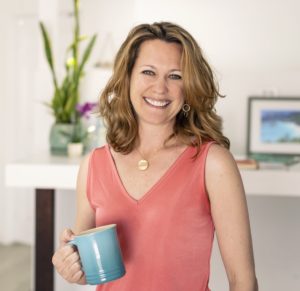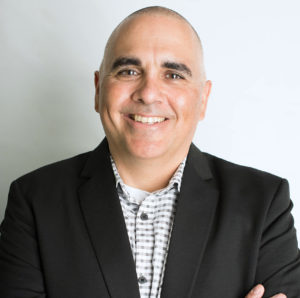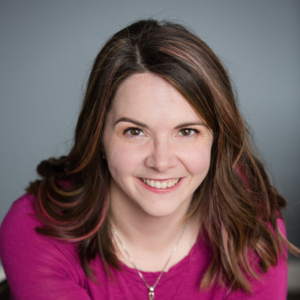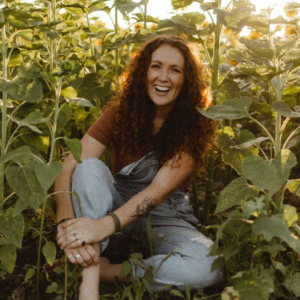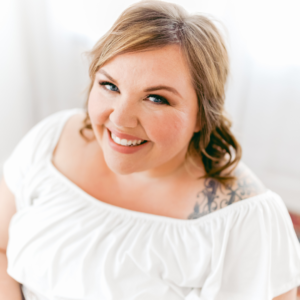Kyshira Moffett is an award-winning serial entrepreneur, brand strategist, author and host of the Brand Your Power Podcast who specializes in helping ambitious women entrepreneurs package their expertise, brand their influence, and monetize their online presence.
I can’t wait for you to hear this interview, because there were a couple of things that Kyshira said about marketing and money mindset that were SO GOOD they just gave me chills twice – once when she said them, and then again while I was producing this episode!
I totally resonated with Kyshira’s story because like me, she grew her side hustle to six figures before quitting her day job – and she’s all about focusing on organic marketing strategies – which are marketing strategies that cost you time instead of money – and as you’ll hear from Kyshira, the return on your time investment is well worth it.
This episode is basically a mini-course on how marketing works from someone who’s not an expert in organic marketing, but an expert in how to sell high-ticket offers, and the branding and positioning behind it.
So grab a pen and paper, you’re gonna wanna take notes on this one!
Kyshira and I talk about:
- Her journey to becoming a business coach specializing in organic marketing strategies.
- Exactly how she grew her side hustle to six figure business before she quit her full time job.
- Why organic marketing strategies are the best place to focus when you’re first starting out.
- Some of the biggest mindset issues that hold her clients back.
- The beginning steps to take when you’re getting started with organic marketing.
- Behind the scenes of Kyshira’s business + what a typical day looks like for her.
- Why investing in yourself and your mindset is one of the most important investments you can make in your business.
- Her best advice for you if you’re struggling to get traction in your side hustle.
- The one belief Kyshira had to change about herself to get where she is today.
My favorite quotes from Kyshira:
- “I care a lot about curating the right experiences with the right people, working with the right clients. I'm really big on energy and alignment and things like that. I found organic marketing brings the right people to me.”
- “You're given these talents, you have your own unique touch that just no one else has.”
- “The people with the most likes don’t always end up with the most money.”
- “You have to direct people. You have to say, “Click this link, go do this, go sign up, go book.” People underestimate the power that those two or three little words have, but you have to instruct your audience!”
- “My business is not going to run me. I am not going to be abused by my business. I am going to take the time that I need.”
- “When you start to recognize that you're worth spending the money, you recognize that you're worth receiving the money.”
Resources mentioned in this episode:
Bio:
Kyshira S. Moffett, MBA is an award-winning serial entrepreneur, brand strategist, and author who specializes in helping ambitious women entrepreneurs package their expertise, brand their influence, and monetize their online presence.
Passionate about educating and equipping women with strategies to launch and scale their own businesses, Kyshira created #HERmovement in 2013. What began as an online community with more than 30K global followers and 2.6K members on Facebook, has since expanded to a digital educational hub full of online courses and products, a YouTube channel, and a podcast known as “Brand Your Power”.
Kyshira launched The Power Collective in 2018 to where the mission is to accelerate the growth of small and mid sized woman-owned businesses to create more economic equality within the US. The Power Collective is a management consulting firm with specialities in business development, marketing and branding.
The firm provides private consulting services, online courses, and corporate training programs where they are able to facilitate intimate and large scale workshops on site for internal teams.
Cultivating her passion for beauty, she launched Life of a Bombshell Cosmetics; a premium, yet affordably-priced cosmetics line designed for women who are movers and shakers.
Keeping up the momentum, Kyshira has published three books: Bombshell of All Trades, Beauty That Banks, and most recently, All in Favor of Branding.
She’s also published three planners: From the Desk of a Bombshell, Project ManageHER, and Launch Your Beauty Brand Toolkit.
When Kyshira is not busy growing her Bombshell empire, she’s an active member of the Greater Pittsburgh community. As former president of the National Black MBA Association, Pittsburgh Chapter and UYLP, she continues to exercise her expertise in training, facilitation, and public speaking by hosting workshops for professional organizations in the areas of branding, entrepreneurship, and the power of social media. In 2018, Kyshira was inducted into the Forbes Coaches Council.
Her continuous efforts and involvement have been recognized by Forbes, Brit and Co, EBONY Magazine, Fast Company, XO Necole, CNN Money, Blavity, Pittsburgh Business Times, and more! She is the recipient of the 2017 Entrepreneur of the Year Award, Millennial Visionary of the Year Award, and the Fab 40 under 40 Award. She is a proud graduate of Hampton University and member of Zeta Phi Beta Sorority, Inc.

